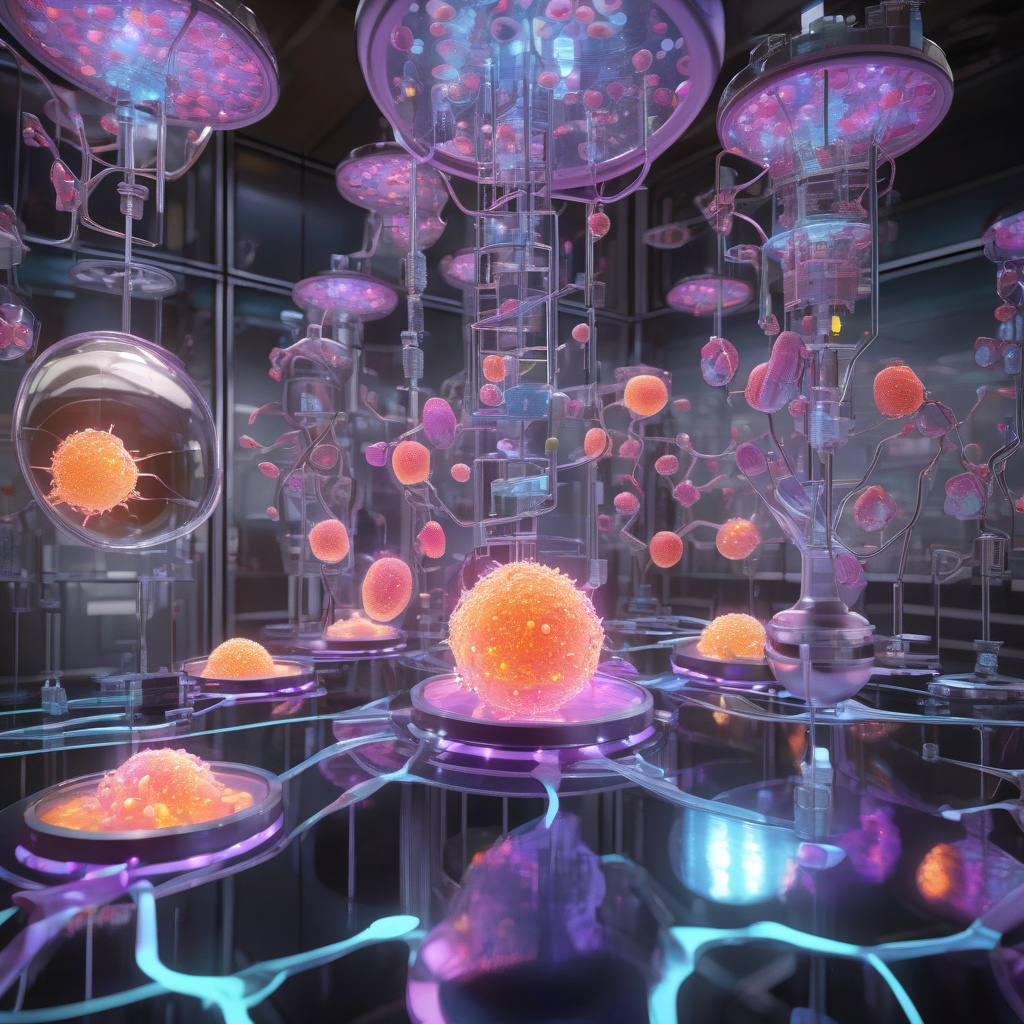Cells Engineered to Produce Biological Qubit Open New Quantum Frontier
In a groundbreaking development, researchers at the University of Chicago have achieved a significant milestone in the field of quantum biology. By harnessing the power of synthetic biology and quantum computing, scientists have successfully engineered living cells capable of producing biological qubits. This pioneering advancement not only pushes the boundaries of quantum technology but also promises a new frontier in understanding cellular processes at the nanoscale level.
The conversion of a living-cell protein into a functional qubit represents a remarkable fusion of disciplines, with profound implications for both quantum computing and biological research. Qubits, the fundamental units of quantum information, have the unique ability to exist in multiple states simultaneously, enabling exponential increases in computational power. By integrating these quantum properties into living cells, researchers have unlocked the potential for quantum-enabled nanoscale magnetic resonance imaging (MRI) and unprecedented insights into the intricate machinery of cells.
One of the most exciting prospects of this breakthrough is the prospect of leveraging biological qubits to revolutionize the field of medical imaging. Traditional MRI techniques rely on the detection of magnetic fields generated by atomic nuclei in the body to create detailed images of internal structures. However, the resolution of conventional MRI is limited by the size of the magnetic moments in these nuclei. By harnessing the quantum nature of biological qubits, scientists envision a future where nanoscale MRI can capture images with unparalleled clarity and precision, offering new diagnostic capabilities and enhancing our understanding of cellular functions.
Furthermore, the integration of biological qubits into living cells opens up new avenues for studying complex biological processes at the quantum level. Quantum-enabled technologies could provide researchers with the tools to probe the inner workings of cells with unprecedented resolution, shedding light on the mechanisms underlying diseases and potentially leading to the development of novel treatments. From unraveling the mysteries of protein folding to deciphering the dynamics of cellular communication, the applications of biological qubits in understanding life at the quantum scale are limitless.
The successful engineering of cells capable of producing biological qubits underscores the transformative potential of interdisciplinary research at the intersection of quantum physics and biology. By harnessing the power of synthetic biology to manipulate cellular machinery at the quantum level, scientists have taken a significant step towards realizing the full potential of quantum technologies in the realm of life sciences. As we continue to unlock the secrets of quantum biology, the possibilities for innovation and discovery are boundless, offering a glimpse into a future where quantum-enabled cells revolutionize healthcare, biotechnology, and our understanding of the natural world.
In conclusion, the creation of biological qubits within living cells represents a monumental achievement with far-reaching implications for quantum computing, medical imaging, and biological research. The convergence of quantum physics and synthetic biology has opened up a new frontier in our quest to understand the mysteries of life at the quantum level. As researchers continue to push the boundaries of quantum technology, the era of quantum-enabled cells holds the promise of revolutionizing our approach to healthcare, unlocking the secrets of cellular biology, and reshaping our understanding of the quantum world.
#QuantumBiology, #BiologicalQubits, #NanoscaleMRI, #CellularResearch, #QuantumFrontier
